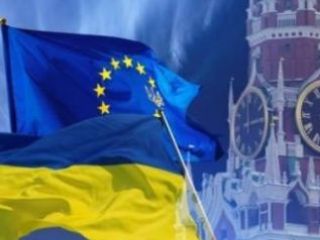Poland and Germany were both initiators and drivers of a New Eastern policy linked to the Eastern neighborhood and Russia/Soviet Union.
Andrei Yahorau: Sanctions that would noticeably affect the resources of the Russian regime are needed

Russian society shares Kremlin’s position to continue with aggression in Ukraine; thus, the international community shouldn’t fear that sanctions would affect broad strata of society.
How efficient are sanctions introduced by the US and the EU against Russia? EuroBelarus Information Service asked Andrei Yahorau, the head of the Centre for European Transformation, to share his viewpoint.
— The US introduced sanctions, and the EU coordinated the following round of sanctions against Russia. How efficient are these measures? Will they make Kremlin abandon its plans on aggression against Ukraine?
— These sanctions are aimed exactly at the prevention of Russian aggression in Ukraine. It is to stop military actions of gunmen at the territory of the eastern Ukraine that served as a reason for the following round of sanctions.
Conversely, Russia implemented a new round of expansion, basically starting an open military invasion into Ukraine, and new round of sanctions is introduced as a response to such actions.
As a response to the sanctions, a drop in prices of Russian companies and the depreciation of the Russian ruble already occurred at the Russian markets.
— What measures can give actual effect?
— We are to use the whole range of measures, which are at the disposal of the international community.
We should realize that the Russian elites and the Russian society are consolidated in terms of continuation of Russian aggression in Ukraine; they are not going to surrender. Now Russia can take a defensive stance; but even if the Russian authorities and the Russian society are ready for the sanctions, it won’t reduce their efficiency if the international community takes a serious stance. Russian society shares Kremlin’s position to continue the war in Ukraine; thus, the international community shouldn’t fear that sanctions would affect broad strata of society.
— Immediately after the sanctions were introduced, Lithuania President — Dalia Grybauskaitė said that they are insufficient. What did she mean by that?
— Sanctions applied earlier were personal and specific; they didn’t affect Russia’s economic or political situation. And we need sanctions that would noticeably affect the resources of the Russian regime. Let me repeat: Russian society shares Kremlin’s position, which is to continue with aggression in Ukraine; so the international community shouldn’t fear that sanctions would affect broad strata of society.
— Some Belarusan politicians believe that sanctions against Russia will make Lukashenko adjust his obviously pro-Russian foreign policy course. How feasible is that?
— These sanctions will make Belarus act slightly differently only if Belarus experiences the negative influence of these sanctions. Lukashenko won’t turn away from Russia only because sanctions against it are imposed, as Lukashenko himself is liable to the international sanctions since 1996.
Others
-
Uladzimir Matskevich: The sooner the "Union State" is denounced, the better for Belarus
Not only does the “Union State” undermine the establishment of civilized relations with Europe, but it hinders the possibility of normal relations between Belarus and Russia.
-
Uladzimir Matskevich: The regime can no longer control the situation in the country
The authorities are unable to prolong the social contract with the people: there is no way out of the social crisis.
-
Press release of the BNP in connection with the next round of the dialogue in the format of the EU-Belarus Coordination Group
Belarusan National Platform of the Eastern Partnership Civil Society Forum welcomes the dialogue process in the format of the EU-Belarus Coordination Group, the third round of which was held in Minsk on 3-4 April 2017.
-
Hennadiy Maksak: Europe must react adequately to the events in Minsk
A new wave of political repressions should make the EU return to tougher policy towards the Belarusan regime.








Comments
From farewell to a new Eastern policy and towards a new development
Poland and Germany were both initiators and drivers of a New Eastern policy linked to the Eastern neighborhood and Russia/Soviet Union.